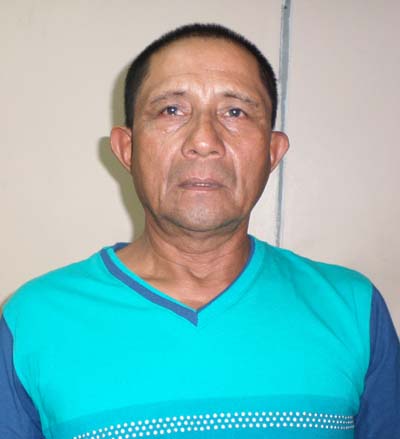By Bibi Khatoon
Residents of Orealla and Siparuta located up the Corentyne River in Region Six are grappling with a shortage of fuel and other resources as a result of the current lockdown in Guyana and Suriname to tackle COVID-19.
Toshao of Orealla, Carl Peneux told the News Room Friday that the Corentyne River, which residents transport their groceries and other items, is blocked by members of the Surinamese military.
As a result, there is no alternative for the community to buy groceries or fuel which is rapidly diminishing.
“We cannot travel to Corriverton for over two weeks, however, we managed to get a boat to go out about a week and a half ago and we got some supplies in. At present the supplies are very low, our fuel is out, our village generator fuel is finished, our water pump is without fuel right now also, the stocks in the shops are low and we really need to go out now for fresh supplies,” Peneux said.

He is calling on the authorities to assist the village.
Orealla and Siparuta have approximately 1,200 residents.
The village leader said some residents are in possession of pineapples which they would like to transport to the Corriverton market.
He told the News Room that these concerns were raised with Government ministers and the Civil Defence Commission but there has been no response thus far.
The restriction is also affecting medical staff in the communities.
Dr Lerone Henry, the Government Medical Officer in charge of the two villages, told the News Room that the doctors and nurses are running low on groceries.
He added that lack of adequate fuel will soon affect the functions of the medical centre.

“Before taking a patient out to Corriverton or Skeldon, I would have to inform the hospital that I will be there in an hour or so and I will tell them the location because depends on the tide, that is where we are going to stop…
“Also, they would have to send that ambulance to the area to get that patient…now if we don’t have any means of communication then I wouldn’t be able to get to inform them of the transfer,” Henry told the News Room.
The Health Centre receives electricity from a generator and without fuel, delivering babies in the nights will also be challenging, Dr. Henry said.
Dr. Henry said the Health Centre is provided with the regular Personal Protective Equipment and is not fitted to handle a positive case of the new Coronavirus.
The patient will have to be sent to New Amsterdam where he/she will be treated.
He noted that there is also no facility in the communities which can serve as quarantine areas for persons who venture out of the village while people’s homes are too small to serve such purposes.
The doctor has recommended the use of the Indigenous Peoples Hostel in Corriverton to quarantine persons for seven days.
The COVID-19 measures were implemented on April 3. The aim is to restrict movement of people in order to stop the spread of the disease.
However, Orealla and Siparuta is also faced with another challenge of persons sneaking out of the villages in the nights.
This is posing a threat to residents since there is no way to screen those persons upon their return. The News Room understands that with just three Police officers, it is difficult for them to enforce the regulations.
The Toshao said persons are put to do community work when they go against the curfew or COVID-19 measures but stricter penalties should be mandatory.
According to the Gazetted order for the measures, the penalties are outlined in the Public Health Ordinance Act but that act has not been updated for decades.






